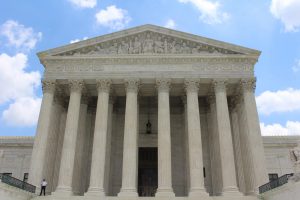
It’s that time of year again when the United States Supreme Court unveils its agenda for the year season. One interesting case to make sure to watch for is Kirtsaeng v. John Wiley & Sons. The case deals with the first-sale doctrine. A precedent established by the Supreme Court since 1908 that acknowledges compete ownership of a product by the consumer after the first purchase. This case all started with college textbooks, an expense all college students are aware of. An international student, Supap Kirstaeng, told his family back in Thailand to buy his textbooks on the international market. He got them for a huge discount and shipped them to him privately. Currently, international textbooks are not allowed to be sold in the United States. After Mr. Kirstaeng read the books, he sold them in the US. The textbook company filed suit and the controversy has made its way up to the Supreme Court.
The lower federal courts have ruled that overseas goods, whether completely foreign or made of foreign components, are not subject to the first-sale doctrine. If the Supreme Court upholds the lower court, there are enormous ramifications for Americans and sites like eBay, Craigslist. If the first-sale doctrine overturned with respect to goods made of foreign components, royalties may have to be paid to the original manufacturer or even shut down. This would encourage American companies to offshore because they will have larger control of their product. The ruling would extend to intellectual property and media; this means no more Netflix. Let’s hope the Supreme Court rules in favor of the consumer. Unfortunately, that would go against some of their recent precedent; Citizens United v. FEC. The oral argument will be heard October 29, 2012.



